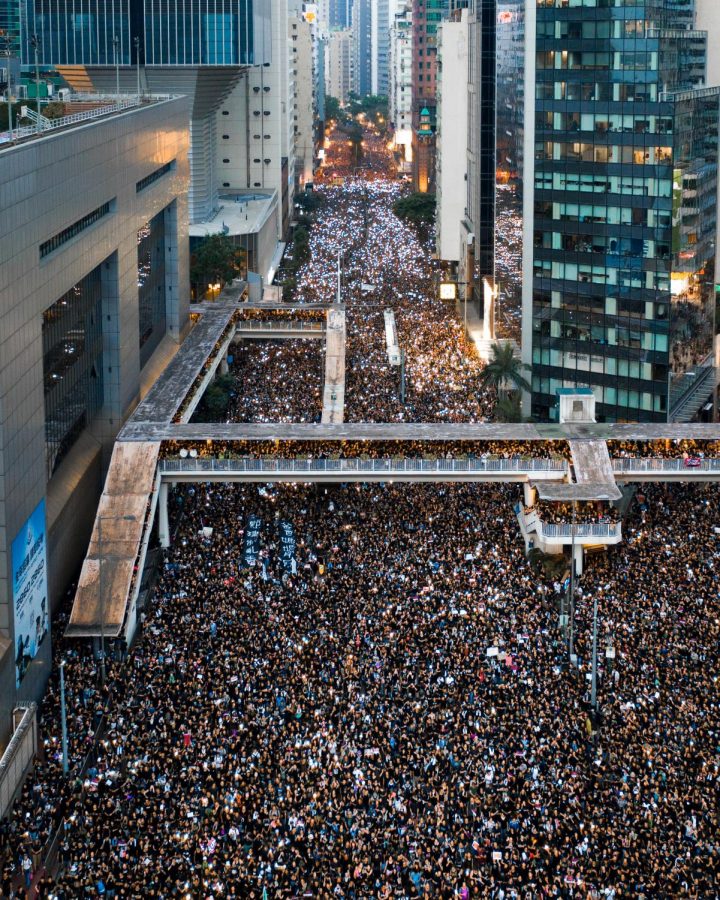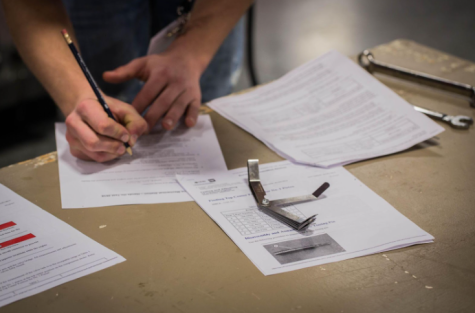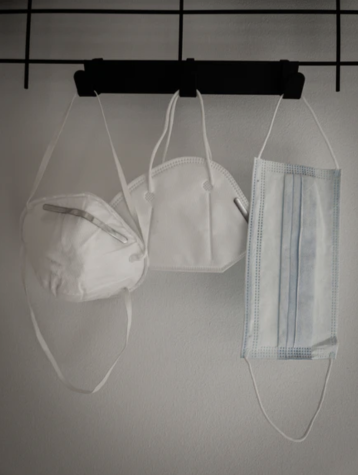Hong Kong: the Front Lines of Democracy
Although protesting started on March 31st, months ago, tensions between protesters and the mainland government of the People’s Republic of China have all but died down, and this is not the first time that the people have spoken up. The root of the mass public protests in recent months, is a bill set about by the Hong Kong government, which would allow for the extradition of arrested criminals to the nations in which they committed their crime. This was in response to the case of Chan Tong Kai, a Hong Kong national who murdered his pregnant girlfriend while on vacation in Taiwan. Kai was arrested for his crime in Hong Kong, meaning he had to be transported back to Taiwan to face trial. The only problem was, Hong Kong did not have any extradition laws in place. This new bill however, would also allow citizens to be extradited to the mainland China.
Demonstrators take to the streets in protest of the new extradition bill
February 11, 2020
Although protesting started on March 31st, months ago, tensions between protesters and the mainland government of the People’s Republic of China have all but died down, and this is not the first time that the people have spoken up. The root of the mass public protests in recent months, is a bill set about by the Hong Kong government, which would allow for the extradition of arrested criminals to the nations in which they committed their crime. This was in response to the case of Chan Tong Kai, a Hong Kong national who murdered his pregnant girlfriend while on vacation in Taiwan. Kai was arrested for his crime in Hong Kong, meaning he had to be transported back to Taiwan to face trial. The only problem was, Hong Kong did not have any extradition laws in place. This new bill however, would also allow citizens to be extradited to the mainland China.
In the People’s Republic of China, there are no fair trials. No separation of powers. No trial by jury. No humane punishment for the convicted.
Hong Kong is a semi-autonomous region of the PRC. When the territory was succeeded to them from Britain, many Hong Kongers were opposed to the idea of being under a communist regime, so to prevent a conflict, the PRC allowed the territory to keep its democratic government in a term known as “two systems, one country”. This was not supposed to last forever, as Hong Kong’s government was to slowly be incorporated into the mainland communist government, with the merger to be complete by 2047. Under the current rule of Xi Jinping however, the process is being sped up.
Nine pro-democracy leaders in Hong Kong have already been arrested. Abductions of booksellers and political activists by a secret police have created a clear threat to the ideals of democracy and liberty. But Hong Kong is pushing back. Since 2003, hundreds of thousands of pro-democracy activists have taken to the streets whenever an anti-democratic law or bill is passed by the PRC. This new extradition bill is widely seen as the next step of encroachment into Hong Kong’s freedom. “If the bill passes, Hong Kong has fallen” stated an anonymous Hong Konger in a recent interview published on Vox.
As the world watches this clash between the ideals of liberty and tyranny, many in our world of social media and first-world problems would simply look past it. However, this event is one of the most important of our time. If we as a generation wish to preserve peace and democracy in this world when we are calling the shots, right now is prime time to keep our eyes open and take action.












